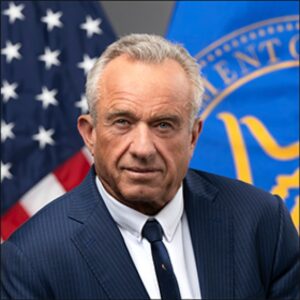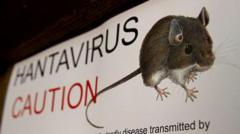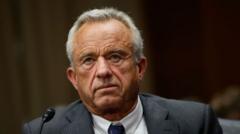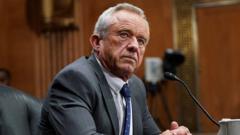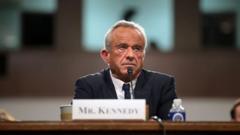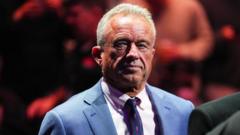Kennedy Jr.'s panel composition has raised alarms among health experts, fearing bias and inadequate expertise. The committee will review longstanding vaccination schedules for children and respond to concerns regarding vaccines' safety.
RFK Jr's New Vaccine Advisory Panel Faces Scrutiny Over Qualifications and Agenda

RFK Jr's New Vaccine Advisory Panel Faces Scrutiny Over Qualifications and Agenda
Amidst controversy, US Health Secretary Robert F. Kennedy Jr.’s Advisory Committee on Immunization Practices re-evaluates childhood vaccination protocols.
The newly appointed Advisory Committee on Immunization Practices (ACIP) is drawing significant scrutiny as it convenes for the first time under the leadership of US Health Secretary Robert F. Kennedy Jr. Tasked with reviewing long-established vaccination schedules for children and teenagers, the panel has sparked concern due to its controversial makeup, which includes individuals known for their skepticism toward vaccines.
Following Kennedy Jr.'s decision on June 9 to dismiss all 17 previous ACIP members, he selected eight new members, several of whom lack extensive backgrounds in epidemiology or immunology, prompting criticism from both public health experts and lawmakers. The panel held its inaugural meeting on Wednesday, amid a backdrop of apprehension regarding its qualifications and implications for public health.
During the meeting, newly appointed chair Dr. Martin Kulldorff, who claimed he was terminated from Harvard due to his refusal to receive the COVID-19 vaccine, outlined plans for new working groups to delve into immunization schedules. Among the issues to be addressed is the advisability of administering the hepatitis B vaccine to newborns, a vaccine historically recognized for its effectiveness in preventing severe liver disease. The review of vaccination protocols for diseases like measles further suggests a reevaluation of established preventive measures that many experts deem safe.
Bill Hanage, an epidemiologist at Harvard TH Chan School of Public Health, underscored the peculiar nature of reviewing long-licensed vaccines, implying a potential justification for doubting the approval processes of established immunizations. He remarked, "I cannot think of any rational reason you would look at that and think it to be the case."
Originally, the panel was slated to consider recommendations for a vaccine against Respiratory Syncytial Virus (RSV), but this voting has since been postponed. Additionally, a presentation on the controversial use of thimerosal—a mercury-containing preservative previously used in vaccines—will be delivered by Lyn Redwood, affiliated with an anti-vaccine group.
Former ACIP member Dr. Paul Offit highlighted troubling patterns in the committee's formation, suggesting that Kennedy Jr. surrounded himself with individuals who have exhibited an anti-vaccine bias. The group’s choice of panelists, he asserted, diverges significantly from the diverse expertise typically expected from such committees.
Further criticisms emerged from Republican Senator Bill Cassidy, who voiced concerns about both the panel's limited membership and the absence of a CDC director to provide authoritative oversight on the recommendations. He noted that while the appointees possess scientific credentials, many lack robust experience in critical fields necessary for evaluating modern vaccine technologies, particularly mRNA vaccines.
In a surrounding climate of skepticism and concern, the operations and recommendations of Kennedy's newly appointed advisory committee will undoubtedly have substantial implications for public health policy and childhood vaccination practices in the United States.






